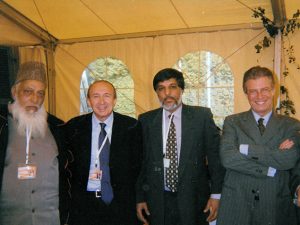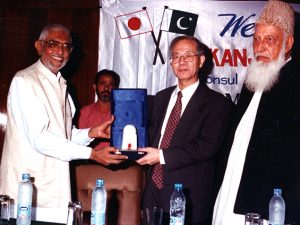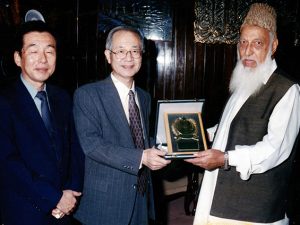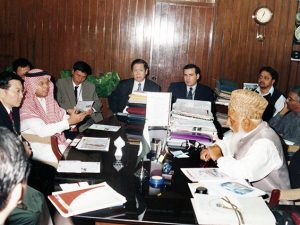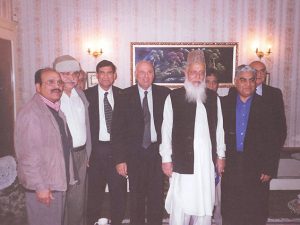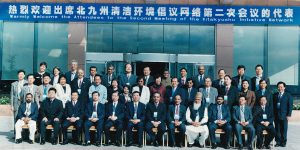MASS TRANSIT PROJECT
In order to solve the complex issue of public transportation in Karachi, experts advise one solution – mass transit. Malik Zaheer-ul-Islam – our Director-General, Mass Transit – was a hardworking and experienced officer. He worked tirelessly and zealously with our team for the project. We had included the project into the Tameer-e-Karachi Program at the time of its approval. We advertised the tenders, asking interested companies to submit their proposals on the basis of BOT [Build, Operate & Transfer]. Given the recent worst situation of law, order in the city, local and foreign investors were fearful and surrounded with doubts of sorts when investing in transportation. We initially included two corridors, one leading to Tower from Sohrab Goth, and the other to Orangi Town from Cantt Station. Some were of the opinion that the corridor shouldn’t continue past Banaras Chowk because the road wasn’t wide enough and there were also issues related to encroachment. I categorically rejected this suggestion and asked for Orangi Town’s inclusion at all costs.
We told the companies – whom we had sign MoUs with – to participate in the tender because neither I nor any member of my team were willing to compromise on transparency and competition. We received proposals from two companies, namely American Maglev Technology Inc. which proposed a magnetic levitation train. My team members rejected it on the grounds that it had recently been through trials and also because it didn’t apparently have a very strong financial position. The other company was China National Machinery and Equipment Corporation Group (CNMEG). It proposed a monorail like the other major cities of the world which would cover some distance on pillars and track above the surface and the rest on an underground track. It was an incredible project and its materialization would bring a welcoming revolutionary change for public transport.
The CNMEG put forth a $568 million plan, but it was based on credit financing, not BOT. They offered to bring in the investment too, saying the city government will be bound to repay in easy instalments. They also agreed the financing with AXIM Bank, a renowned Chinese bank, in principle and the feasibility was finalized. We thought that there was no more hurdle in the way of the project’s start. Since sovereign guarantee – the state being a guarantor of repayment – is one of the conditions for investment into the projects of such scale between two countries, I took President Musharraf into confidence and explained everything to him. A high-level meeting was convened in Islamabad after a few days. It was participated by the president and compered by Prime Minister Shaukat Aziz, while MQM’s Babar Ghauri and Dr. Farooq Sattar were accompanying Governor Sindh Dr. Ishrat-ul-Ebad. Once my briefing was complete, Deputy Chairman Planning Commission Akram Sheikh opined that the credit financing cannot be approved and that the project can only be initiated via BOT. PM Aziz supported Sheikh’s opinion and surprisingly, both MQM representatives did the same.
Dr. Ebad threw his weight behind my proposal and said that my idea is implementable. He further said that the federal government should approve my idea, terming it the most significant for Karachi. Addressing President Musharraf, Akram Sheikh said that they will convince the Chinese company to base their project on BOT. Observing the tone of the meeting, the president said: “Naimat sahib, what you want is the project. You can agree with them if they are saying that they can convince them.” I had nothing more to say because the participants had something else in their minds.
I had pity for the MQM representatives who supported Akram Sheikh that day. Allah intentions but some compatriots believed that they didn’t want a city nazim of Jamaat-e-Islami to get credit for a public project of such value. In my own view, they had opposed me just for the sake of it. Our collective political behavior to not have a positive attitude for even a positive approach or good projects of a rival must change. In fact, it is a key hurdle in the way of the country’s progress. In this instance too, the Chinese representatives left with a heavy heart and the plan to introduce mass transit in the city died in the project files.
![]()
